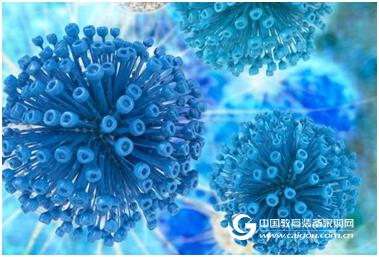
March 16, 2017 / Bio Valley BIOON/---February 13th to February 16th, 2017 at the Conference on Retroviruses and Opportunistic Infections (CROI) It is known that a clinical trial led by the University of Liverpool in the United Kingdom to improve the use of nanotechnology to improve drug therapy for HIV-infected patients has been successful. The CROI is an annual conference on HIV research, clinical practice and progress.
The clinical trial of this healthy volunteer was led by Professor Andrew Owen, a pharmacologist at the University of Liverpool, Professor Steve Rannard, a material chemist, and St. Stephen's AIDS Foundation, Chelsea & Westminster Hospital, London. Stephen's AIDS Trust). It studies the use of nanotechnology to improve the delivery of drugs to HIV-infected individuals. It is also the first to use oral nanomedicine to optimize HIV treatment.
Operating substance
Nanotechnology manipulates matter at the atomic, molecular, or supramolecular level. Nanomedicine uses nanotechnology to prevent and treat human diseases. By developing smaller pills that are better and cheaper to manufacture for patients, this evolving discipline has the potential to dramatically change medicine and is already influencing the many clinically used therapies and diagnostic methods around the world.
Develop new therapies
Recent assessments of HIV-infected populations have shown that if there are benefits, these infected individuals are willing to adopt nanomedicine as an alternative treatment option. Research at the University of Liverpool focuses on the development of new oral drugs using Solid Drug Nanoparticle (SDN) technology. SDN technology can improve the body's absorption of drugs, reduce dosage and cost per dose, and be able to treat more patients with existing medical budgets.
The results of this clinical trial confirmed the use of a new method to prepare two drugs - efavirenz (EFV) and lopinavir (LPV) nano preparations, in the treatment of exposure (therapeutic exposure When there is a potential to reduce the dose by 50%. EFV is currently the preferred treatment option recommended by the World Health Organization (WHO). In low- and middle-income countries, 70% of adult patients receive an EFV-based HIV treatment.
This clinical trial is linked to ongoing research at the University of Liverpool as part of the multinational alliance's OPTIMIZE project. OPTIMIZE is a global alliance of alliances designed to accelerate access to simpler, safer and more affordable HIV therapies. Funded by the United States Agency for International Development, OPTIMIZE is led by the Wits Reproductive Health & HIV Institute in Johannesburg, South Africa, including these interdisciplinary researchers at the University of Liverpool, Columbia University, and Mylan Laboratories and the Medicines Patent Pool (MPP).
Potential application
Benny Kottiri, director of the HIVID/AIDS Research Office of USAID (International Drug Purchase Facility), said, "The potential application of this HIV treatment is quite promising. Through joint efforts, these integrated investments have the potential to further reduce the need to control HIV. The drug dose, which brings real benefits to the world. This will reduce the cost of treatment, which is particularly beneficial for countries with limited resources but the most burden of disease."
Shanghai Chuangsai Technology has excellent performance, interleukin cytokines, fetal bovine serum, electrophoresis equipment scientific instruments, raw material drug standards, chemical reagents, cell culture consumables, Shanghai Chuangsai, mass products special promotions, welcome to inquire!
Other Pet Supplies,Raised Dog Bowls,Deshedding Brush Glove,Pet Cleaning Brush Glove
Yangzhou Pet's Products CO.,LTD , https://www.yzpets.cn